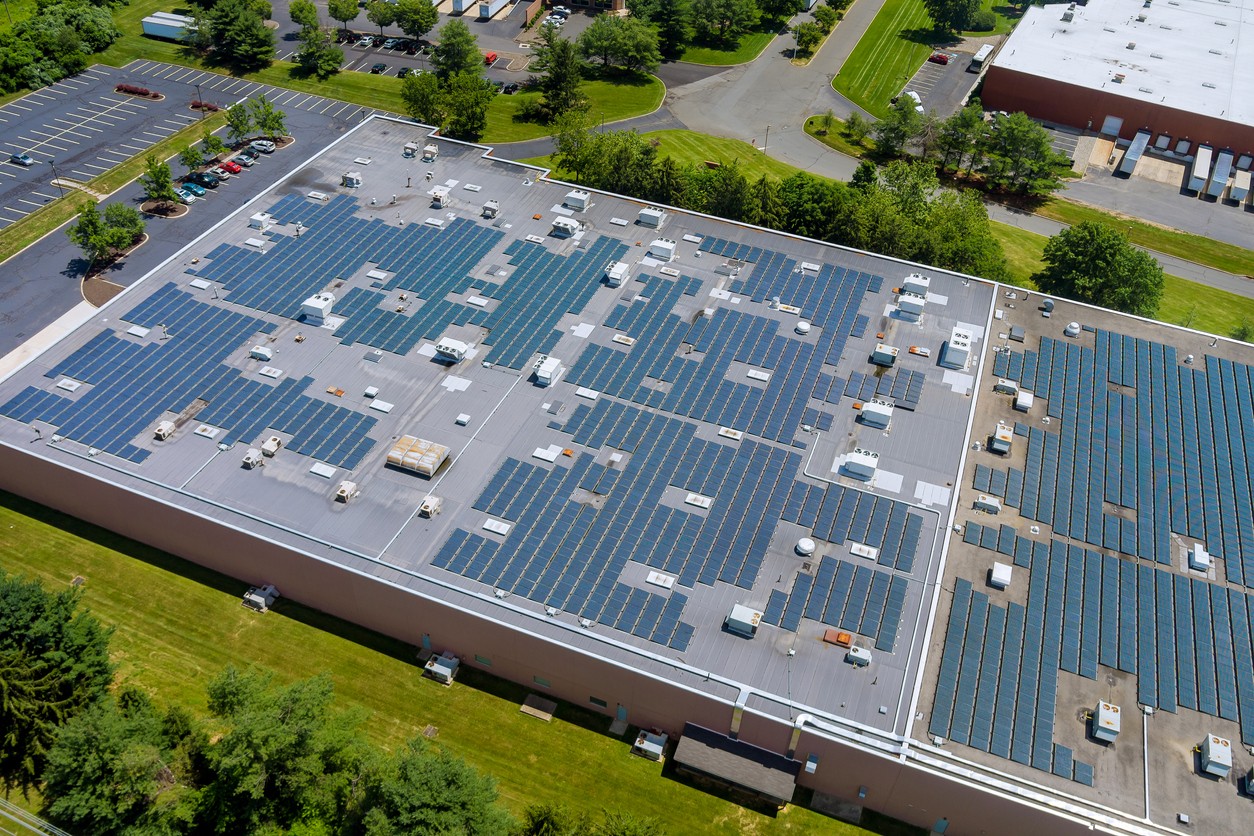
Commercial solar energy is intended for businesses. Solar power is a clean, renewable energy source and is a highly successful energy-saving technology. Many clients, from governments and major corporations to small businesses and educational institutions, use commercial solar energy.
A photovoltaic (PV) panel used for commercial purposes transforms solar energy into electricity. The method to transform sunlight into electricity is known as photovoltaic.
Commercial-grade photovoltaic (PV) solar panels are constructed of silicon solar cells with positive and negative layers, generating an electric field. A solar array is created using commercial-grade solar panels that are connected. It is a group of solar panels that are joined together. They are also called photovoltaic arrays. They are located on a big ground or a building’s rooftop.
Since a building’s rooftop receives the most sunshine, the renewable energy source for solar energy, rooftop commercial solar system projects, are popular among businesses. Continue reading to learn about these commercial solar PV systems in detail.
A commercial solar PV system uses solar panels installed on commercial buildings to harness solar energy and produce power. Depending on the size of the installation, the power produced covers most of the company’s energy requirements and can significantly lower energy costs. Public infrastructures like schools, hospitals, and libraries can also benefit from solar power and lower carbon emissions.
Solar panels are incorporated into the commercial electricity network and placed on nearby lands, buildings, and roofs. The photovoltaic system, also referred to as a solar PV system, converts solar energy into electricity, which fulfills all the energy needs of the building.
You can obtain solar energy from solar panels throughout the year, particularly in the summer. You can also install storage systems to use power after sunset.
Why Should You Use a Commercial Solar PV System?
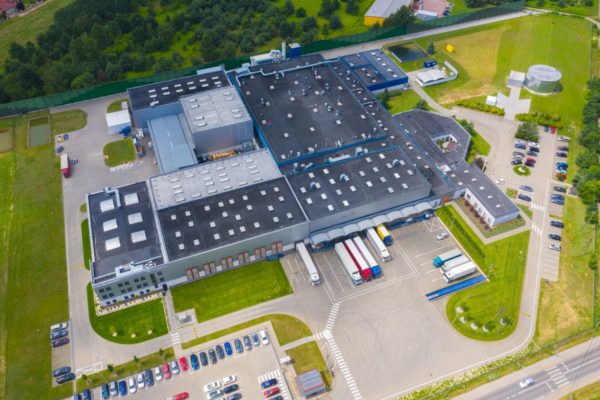
Commercial solar panels are an excellent source of clean, renewable energy because they emit no carbon dioxide and you don’t have to worry about frequent maintenance.
Businesses can significantly lower their electricity bills and carbon impact using commercial solar panels. Installing commercial solar systems, or solar arrays, on the rooftops of residential or commercial buildings can provide enough solar electricity to meet the total energy requirements of the building.
The electricity produced by solar arrays can power inside and outside areas at a reasonable price. Most people have experienced more than 25% savings from their traditional electricity providers after switching to commercial solar systems. Businesses also use this approach to fight against global warming and save the planet for future generations.
Is Commercial Solar Right for Your Business?
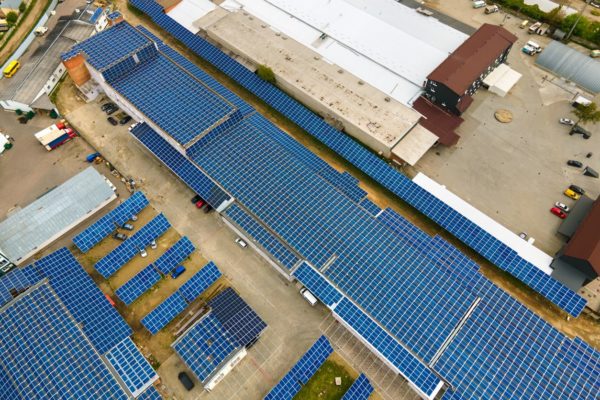
You can use solar energy to reduce electricity costs for your business that operates during day time. High electricity consumers gain a lot from this technology.
You will experience a return on your investments after 4 years of installing commercial solar. Investing in solar renewable energy can save money with less energy usage.
Financial gain is a major factor in installing solar, and there are significant financial benefits. Solar PV system delivers electricity for about 9 cents per kWh. The operations and maintenance costs are included in it. However, the current grid supply pricing generates 13 cents per unit.
When you finance the capital expenditure, your commercial solar PV system can provide enough benefit to create a positive cash flow within 60 months. Solar panels do not have moving parts; thus, they require little to no maintenance.
Types of Solar Panel Systems
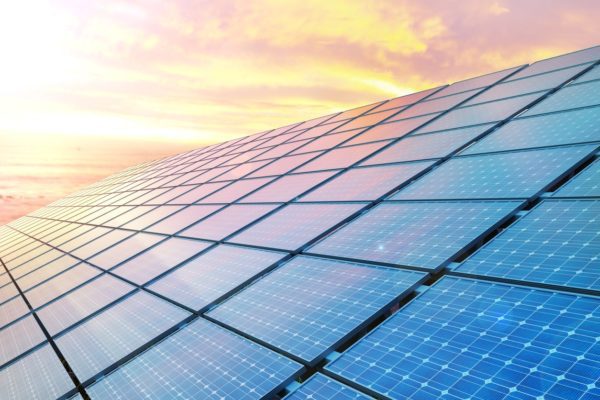
Knowing where to begin might be difficult because there are so many different types of solar panels available. We will discuss some of them below:
- Depending on the manufacturer, various materials can be used to make solar panels. Today, crystalline silicon is used in the majority of modern solar panels. Following that, silicon alternatives are classified as monocrystalline, polycrystalline, and thin film.
- Most new solar panel installations use monocrystalline panels, the most effective and expensive solar panels in the market and by industry standards.
- Polycrystalline silicon panels use multiple silicon crystals; they are a cost-effective choice and are often utilized as grid-tied solar panel components. They are less effective than monocrystalline panels.
- Thin-film solar cells are rarely used. These solar panels are the most flexible since they are composed of amorphous silicon solar cells. If you need to place panels on a curved surface, these flexible solar panels can be an excellent choice.
A solar panel often lasts several decades, although some parts require upkeep and replacement. This is the most expensive and important aspect of your system.
Benefits of Commercial Solar PV System
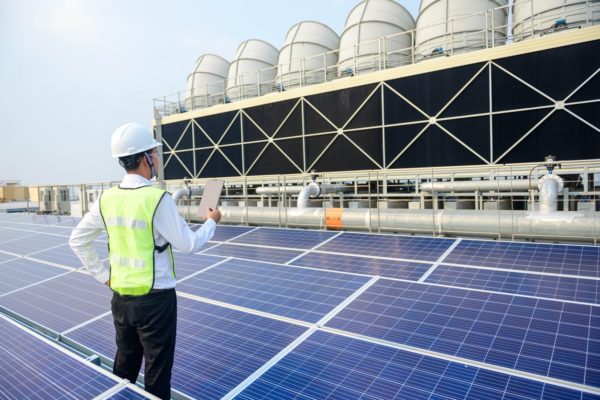
Solar energy allows businesses to become more sustainable in every way. Solar installations help businesses to manage their electricity expenses and carbon footprint. We will discuss the benefits of installing a commercial solar PV system below:
1. Lowered Operating Costs
Going solar may affect the environment, but businesses opt for it to save long-term operational costs. PV solar energy is widely used in industries; it is a more accessible and reasonably priced energy source. It allows businesses to own an asset to generate their power rather than buying electricity from other external energy suppliers and utilities.
You can raise the value of your real estate by constructing a clean energy power plant on-site and installing a commercial solar-powered system, which makes you your own electricity supplier.
Solar installations stabilize your electricity costs and provide a more predictable revenue flow than the external energy you acquire at highly billed rates. You can consider them as a multi-decade investment for your company.
Property managers estimate project costs and future energy production to evaluate your solar installation’s total return on investment. It is due to the low maintenance costs associated with solar systems.
Initial costs usually prevent property owners from going solar, but there are many benefits and incentives to make it a more accessible option for large enterprises to embrace solar energy solutions.
2. Enhanced Energy Control and Resilience with Commercial Solar
Companies with PV solar energy systems are less dependent on public utility providers and other outside sources to meet their energy demands because they can produce sustainable electricity on-site.
Sometimes, grid-tied solar systems go off during a blackout if electricity is not safely supplied back into the local power grid. Solar providers are now incorporating a significant number of commercial solar power systems.
A solar system that has a storage system operates independently as a microgrid. It allows electricity to be continually generated, stored, and used across the property. Companies can strengthen their energy resilience by operating off the grid. When a local power failure occurs, operations are entirely stopped. Having your own commercial solar PV system helps businesses from such disasters.
3. Solar Energy Accomplishes ESG Goals
One of the main reasons companies switch to solar energy is that it helps an organization achieve its social, environmental, and governance objectives. Going solar is not just about cost savings, even though it will probably show a financial benefit on a company’s balance sheet.
Solar power is a very efficient solution for businesses to achieve sustainability goals since it is a measurable and easily quantified green energy asset. Commercial solar energy reduces a building’s carbon footprint as soon as it starts operating; this process is known as immediate decarbonization.
Additionally, most solar-powered systems are very simple to operate and don’t require significant adjustments to regular corporate operations. In most cases, adding an installation to a property won’t interfere with regular operations, allowing a business to carry on as usual.
The overall environmental impact of a solar power installation can be improved in conjunction with other suggested property changes, such as modernized appliances and updated building features, which are carried out by an energy efficiency assessment.
4. Federal Investment Tax Credit
Federal Investment Tax Credit, also known as ITC, is the main incentive that has decreased the cost of solar installation during the last decade. Qualified enterprises can reduce a significant portion of the system expenses from federal income taxes paid by using the ITC.
Sadly, institutions like religious organizations, schools, and other places are not eligible to apply for this credit if they fail to submit yearly income tax returns. In some instances, Tax Equity Financing or third-party ownership can assist firms without a significant tax liability to still benefit from the ITC and a PV system with a lower initial outlay.
5. Amount of Land Required for Commercial Solar Projects
Solar arrays of a commercial solar system can range in size and number. How much land is required is based on the following:
- The amount of sunlight present where the solar system is installed or mounted
- The capacity of the infrastructure to store electricity
- The amount of electricity that the building needs
When buying commercial solar systems for business, you should consider some essential factors. For instance, if you intend to construct a solar farm, remember that 100 square feet is required for 1 kW of solar panels, and 200 square feet is required for a utility-scale project. Most solar provider companies work primarily with companies that have rooftop space for solar installation.
Commercial Solar Services from Coldwell Solar
If you have decided to install a commercial solar system, it is essential to take your time and conduct extensive research because it can significantly affect how long the project takes to complete. If you need more information regarding commercial solar PV systems or are looking to start your next commercial solar project, contact Coldwell Solar for more information.

